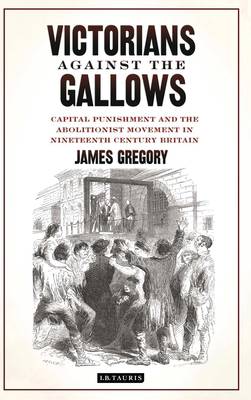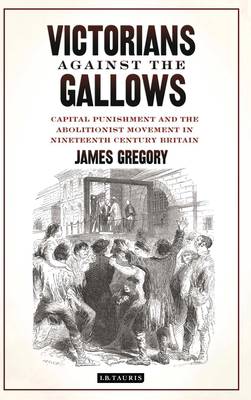
- Afhalen na 1 uur in een winkel met voorraad
- Gratis thuislevering in België vanaf € 30
- Ruim aanbod met 7 miljoen producten
- Afhalen na 1 uur in een winkel met voorraad
- Gratis thuislevering in België vanaf € 30
- Ruim aanbod met 7 miljoen producten
Zoeken
Victorians Against the Gallows
Capital Punishment and the Abolitionist Movement in Nineteenth Century Britain
James Gregory
Paperback | Engels
€ 76,45
+ 152 punten
Omschrijving
By the time that Queen Victoria ascended the throne in 1837, the list of crimes liable to attract the death penalty had effectively been reduced to murder. Yet, despite this, the gallows remained a source of controversy in Victorian Britain and there was a growing unease in liberal quarters surrounding the question of capital punishment. Unease was expressed in various forms, including efforts at outright abolition. Focusing in part on the activities of the Society for the Abolition of Capital Punishment, James Gregory here examines abolitionist strategies, leaders and personnel. He locates the 'gallows question' in an imperial context and explores the ways in which debates about the gallows and abolition featured in literature, from poetry to 'novels of purpose' and popular romances of the underworld. He places the abolitionist movement within the wider Victorian worlds of philanthropy, religious orthodoxy and social morality in a study which will be essential reading for students and researchers of Victorian history.
Specificaties
Betrokkenen
- Auteur(s):
- Uitgeverij:
Inhoud
- Aantal bladzijden:
- 384
- Taal:
- Engels
Eigenschappen
- Productcode (EAN):
- 9781350163492
- Verschijningsdatum:
- 28/05/2020
- Uitvoering:
- Paperback
- Formaat:
- Trade paperback (VS)
- Afmetingen:
- 140 mm x 216 mm
- Gewicht:
- 444 g

Alleen bij Standaard Boekhandel
+ 152 punten op je klantenkaart van Standaard Boekhandel
Beoordelingen
We publiceren alleen reviews die voldoen aan de voorwaarden voor reviews. Bekijk onze voorwaarden voor reviews.











